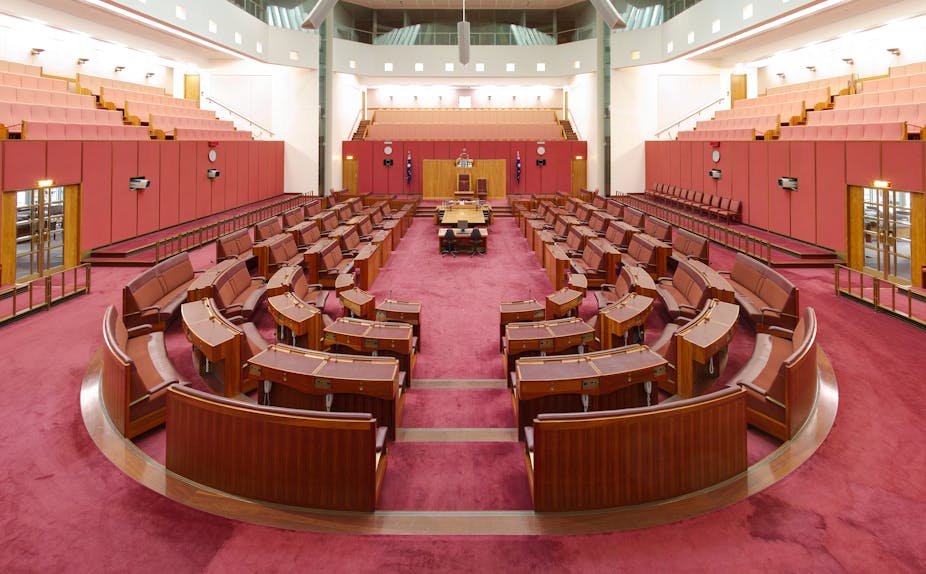A Labor-dominated Senate committee has set the stage for the post-July tussle over carbon policy, recommending that Australia commit to much deeper emissions cuts than the current 5% target, and advising against scrapping carbon pricing.
The report, from the Senate Standing Committees on Environment and Communications, has given a damning verdict on the Abbott government’s Direct Action climate policy.
Among the committee’s recommendations are to:
- Cut emissions by 19% relative to 2000 levels, broadly in line with recommendations by the Climate Change Authority;
- Adopt a market-based carbon pricing scheme from July 1, 2014;
- Not to substitute carbon pricing with the A$1.5 billion Emissions Reduction Fund, the key plank of the Direct Action policy;
- Abolish the repeal of the Clean Energy Finance Corporation.
Half of the committee’s six members are Labor senators, with one each from the Liberals, Nationals and Greens.
The current Labor/Greens-controlled Senate has already twice knocked back the Abbott government’s plans for repealing the carbon tax, but depending on the outcome of the April 5 election in Western Australia, the dynamics of the upper house are likely to be different after July 1.
Power games in the Senate
It is still unclear who will hold the balance of power when the new Senate term begins.
If WA voters deliver the same result as they did during September’s botched poll, the government will need the votes of six out of eight crossbench Senators in order to pass legislation. But the Liberals could potentially lose one of the three seats they won in September, while Labor and the Palmer United Party could each potentially gain one more on their current total, while the Greens could lose one if Scott Ludlam fails to win re-election.
Associate Professor Peter Christoff, who teaches climate and environmental policy at the University of Melbourne, described the Senate committee’s recommendations as “utterly predictable”, but said the report still represented a good critique of the Abbott government’s policy.
“I think the recommendations themselves are sound. They could probably even be a little tougher – 19% (emissions reduction) is a fairly weak target given the science and Australia’s responsibilities. The recommendations point to really significant flaws in government policy,” he said.
In the government’s Green Paper last December, environment minister Greg Hunt described the Emissions Reduction Fund as a “classic market mechanism” that will “buy back the lowest-cost abatement” – in contrast with what he called the “heavy punitive tax” legislated by Julia Gillard’s Labor.
“Seriously unfunded” plan
Christoff described the Direct Action plan as “seriously underfunded, and lacking the revenue base that a carbon tax or market would provide”. The government has pledged not to expand the fund’s budget even if the scheme is not on track to meet its 5% emissions target.
But he predicted that the report would be “resoundingly ignored” regardless of the election result on April 5. “The current government is not interested in listening to Labor or the Greens. The divide has become so profound as to be purely ideological.”
It is still unclear exactly what will happen in the new Senate, even if the Palmer United Party gains the balance of power, Christoff said.
“There are some assumptions being made about PUP’s support for all elements of the Coalition’s climate legislative program. I don’t think it’s clear that PUP will support the rollback of the Clean Energy Fund, for example.”
Penny van Oosterzee, who studies carbon reduction strategies at James Cook and Charles Darwin universities, said Direct Action is “aimed mainly at getting energy-efficiency initiatives up”, meaning that it won’t offer as much incentive for other carbon-reduction options such as planting trees.
“It discriminates against the land sector in favour of the energy sector. If you are going to play a part within the land sector, you would need to be a big player. It discriminates against the small landholders who make up the majority of Australia.”

